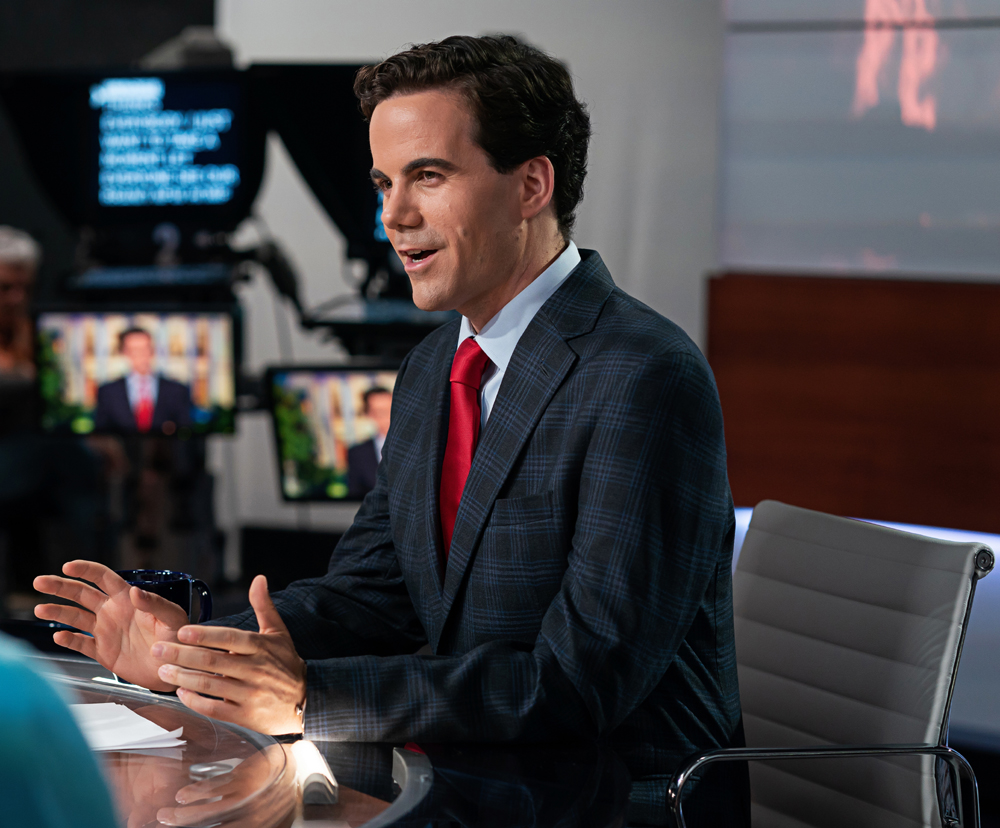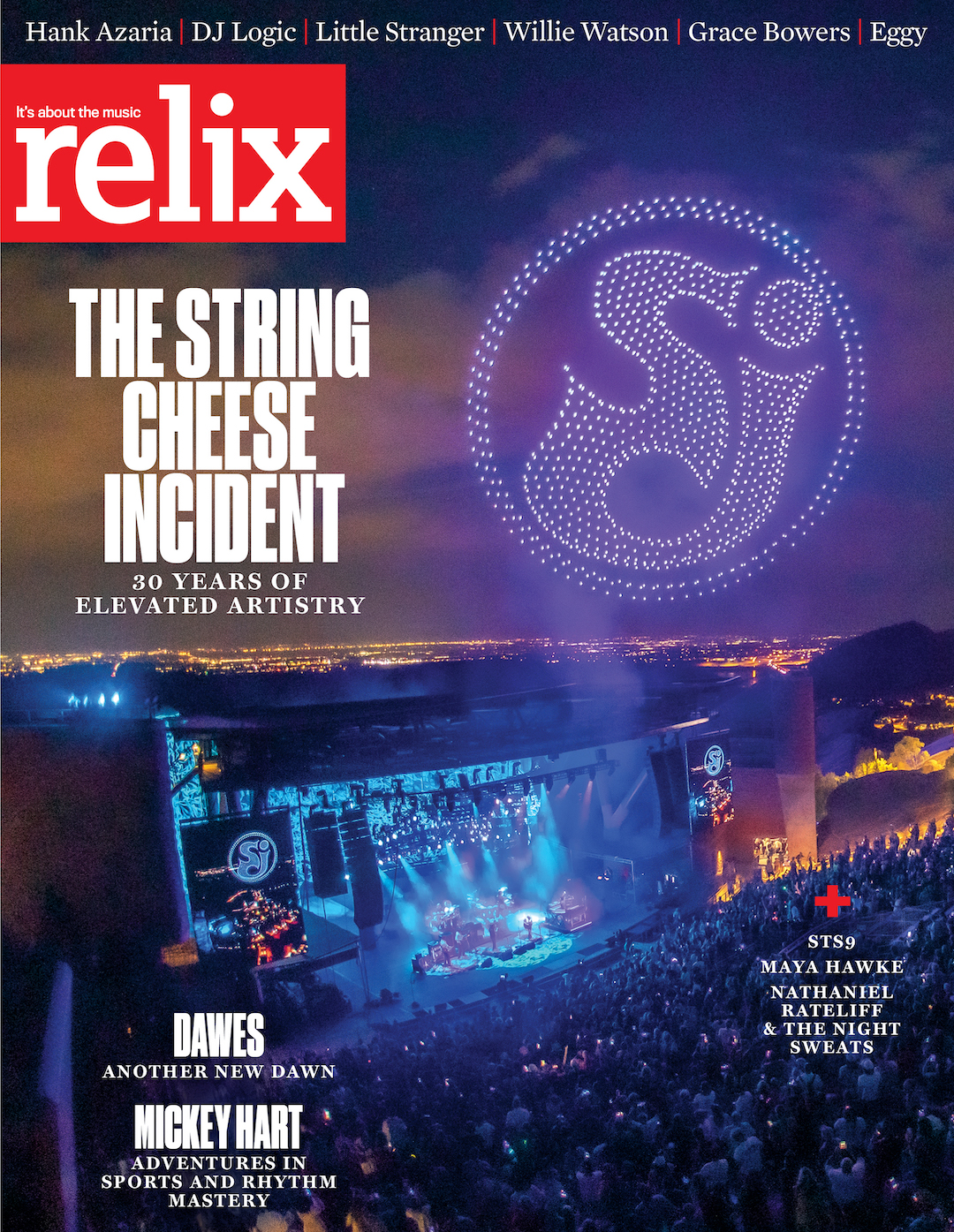Robert Costa on Phish, Umphrey’s and D.C.’s Bipartisan Deadhead Community

“My entire career has been bewildering and thrilling at the same time,” reflects Robert Costa. The 34-year-old journalist— who grew up watching All the President’s Men and admiring Bob Woodward and Carl Bernstein—has gone on to interview President Trump alongside Woodward for the Washington Post, where Costa is a full-time national political reporter. As a teenager, he also revered Gwen Ifill, the longtime moderator of PBS’ Washington Week, and following Ifill’s passing in 2016, Costa took on her role. What’s more, the inveterate Meet the Press enthusiast, who credits the late Tim Russert as an ongoing source of inspiration, occasionally appears on that program, while serving as a political analyst for NBC news and MSNBC.
While much of his day is consumed by politics, Costa maintains an ardor for improvisational music. He even covered the regional concert beat as a Pennsylvania teenager. That’s when he also landed acoustic performances by Maroon 5 and Eve 6 at Pennsbury High School, before convincing John Mayer to play at his 2004 prom. Costa recalls, “It was a two-year campaign to get him to appear. It was a challenge because this was a public school student government, and we had no money. We didn’t have anything except our avid appreciation for his musicianship. I went up to New York City to meet with his manager and pitched him, which was a very cool music industry experience for me at age 17.”
As for his current musical enthusiasms, Costa cites recent shows by Phish, The Black Keys and Umphrey’s McGee. Then, he adds, “Beyond Dead & Company, the band that has really captured me over the last year has been JRAD. They just offer this amazing rush of music. I’m also a huge fan of Derek Trucks and Susan Tedeschi. Their live show is almost unsurpassed on the circuit right now. One of the best times I had recently was this past summer, when I saw them at LOCKN’.”
Before you began reporting on politics, did you consider music to be your principal beat?
I began my journalism career as a music reporter at age 16. I took a job as a freelance concert reviewer for The Bucks County Courier Times, a regional daily newspaper outside of Philadelphia. I was a suburban kid who loved rock music and I was paid $50 an article to drive down I-95 to the Electric Factory, the Trocadero Theatre and the Camden Waterfront [the venue now known as the BB&T Pavilion]. I interviewed Jeff Chimenti and met Phil Lesh after one of his shows. I even had a weekly column in The Bucks County Courier Times called “Jam Band Bob’s Musicology.” I came up with the moniker myself, which, looking back, is somewhat cringe-worthy. But I loved the music so much.
Did you maintain that focus when you attended college at Notre Dame?
I did. I covered concerts for The Observer, the student newspaper. I also had a show on NDtv, the student-run television station. It was very Wayne’s World-ish and called Office Hours. At one point, I brought in Tim Reynolds to play acoustic on my show. I also interviewed the members of Umphrey’s McGee, who had attended Notre Dame. Umphrey’s McGee was a controversial band on campus because they brought a big party scene. At the time, I worked as a booker and promo guy for the campus club Legends and I really wanted to book Umphrey’s, but they were not able to play on campus.
What impact do you think all of that had on your later career?
I really loved music. But, while politics was always an interest of mine, I never thought that journalism was an available job for people like me. It always seemed like a very insider industry, a very insular world. But I started interning for the Charlie Rose Show and This Week with George Stephanopoulos when I was in college.
Covering rock bands was great preparation for covering politicians because, while you’re dealing with some huge egos and you’ve got to dance gingerly around them, you can still ask penetrating questions. So it was actually great training for political journalism.
One of my big scoops was I broke the news that Phish was getting back together. I was a freelancer for Pop Matters and I interviewed Tom Marshall backstage at a Dave Matthews Band show. Tom went on the record with me saying he was in the studio with Trey working on Phish songs, and it became a wire story, picked up by the Associated Press. So I’ve always been reporting on music, but I’ve given up music journalism a bit because I’m so busy with political journalism.
What role do you think live music plays in Washington during these polarized times?
Improvisational music— jamband music in particular— has a real power in connecting people of all stripes. And that stretches into the political realm. There’s such a huge Deadhead community in D.C., and it is really bipartisan. Everyone from Tucker Carlson at Fox News to Senator Patrick Leahy, one of the veteran Democrats on Capitol Hill, loves the Dead. So if you go to a Dead & Company show, you’ll run into Republican lobbyists and progressive activists.
One of the things I’ve found, anecdotally, is that so many people in politics love the sweep of history, and they love to track the incremental developments in different people’s careers and ideologies. That mindset and those passions extend to how people follow the Grateful Dead and different jambands because you always look at people through the sweep of their careers. There is an appreciation for deeper gems—unearthed songs and long-forgotten songs—when they reappear. You understand the scope of a band’s discography and try to appreciate all the different elements. And it’s similar with political junkies. They love the little parts, the minutiae of politics—the players behind the scenes, the details in the background—and knowing about what’s going on in the White House. So there’s a real commonality that’s easy to recognize.
I’ve always found that people, whether they’re liberal, conservative or nonpartisan, can bond over music. And, in our charged, divided times, music has become the way that so many people in Washington are able to connect and avoid bickering. It’s become a way for people to have something else to talk about and that they can go to see together. In a time when everyone’s Balkanized, it’s a collective experience.
There is still nothing as powerful and fun to me as standing at Madison Square Garden for a Phish New Year’s show or a Dead & Company show, where everyone feels like they’re part of a community.



















